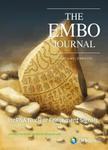版权所有:内蒙古大学图书馆 技术提供:维普资讯• 智图
内蒙古自治区呼和浩特市赛罕区大学西街235号 邮编: 010021

作者机构:Department of Computer Science and Engineering B v Raju Institute of Technology Telangana Narsapur502313 India Department of Electronics and Communication Engineering CMR Engineering College Kandlakoya Telangana 501401 India Department of Computer Science Engineering Saveetha School of Engineering Saveetha Institute of Medical and Technical Sciences Tamil Nadu Chennai600124 India Department of Electronics and Communication Engineering SRM Institute of Science and Technology Ramapuram Tamilnadu Chennai600089 India Department of Computer Science and Engineering Kongu Engineering College Tamil Nadu Perundurai638060 India Health Administration Department College of Business Administration King Saud University P. O Box: 71115 Riyadh11587 Saudi Arabia Department of Community Health Sciences College of Applied Medical Sciences King Saud University P. O. Box 10219 Riyadh11433 Saudi Arabia Department of Health Sciences University of Texas TX United States Department of IT Mettu University Mettu Ethiopia
出 版 物:《Computational Intelligence and Neuroscience》 (Comput. Intell. Neurosci.)
年 卷 期:2022年第2022卷第0期
页 面:5489084页
核心收录:
学科分类:0808[工学-电气工程] 0809[工学-电子科学与技术(可授工学、理学学位)] 08[工学] 0831[工学-生物医学工程(可授工学、理学、医学学位)] 1007[医学-药学(可授医学、理学学位)] 100706[医学-药理学] 1002[医学-临床医学] 1001[医学-基础医学(可授医学、理学学位)] 081203[工学-计算机应用技术] 0835[工学-软件工程] 0803[工学-光学工程] 0812[工学-计算机科学与技术(可授工学、理学学位)] 0702[理学-物理学]
主 题:Forecasting
摘 要:Stroke-related disabilities can have a major negative effect on the economic well-being of the person. When left untreated, a stroke can be fatal. According to the findings of this study, people who have had strokes generally have abnormal biosignals. Patients will be able to obtain prompt therapy in this manner if they are carefully monitored;their biosignals will be precisely assessed and real-time analysis will be performed. On the contrary, most stroke diagnosis and prediction systems rely on image analysis technologies such as CT or MRI, which are not only expensive but also hard to use. In this study, we develop a machine learning algorithm for the prediction of stroke in the brain, and this prediction is carried out from the real-time samples of electromyography (EMG) data. The study uses synthetic samples for training the support vector machine (SVM) classifier and then the testing is conducted in real-time samples. To improve the accuracy of prediction, the samples are generated using the data augmentation principle, which supports training with vast data. The simulation is conducted to test the efficacy of the model, and the results show that the proposed classifier achieves a higher rate of classification accuracy than the existing methods. Furthermore, it is seen that the rate of precision, recall, and f-measure is higher in the proposed SVM than in other methods. © 2022 R. Pitchai et al.